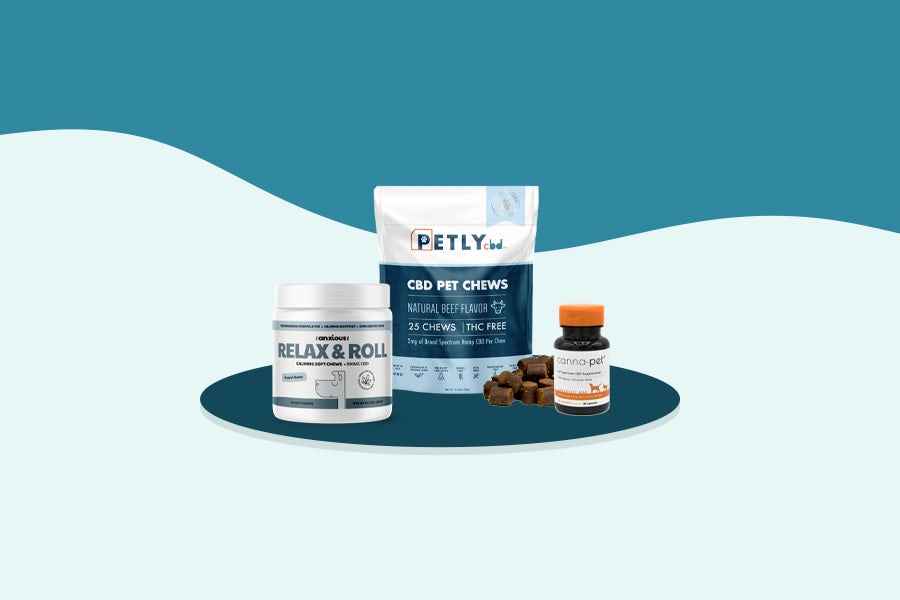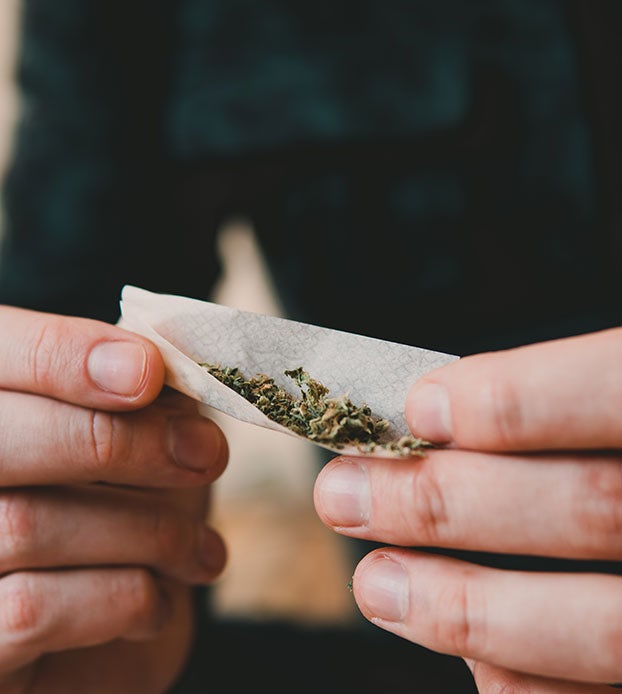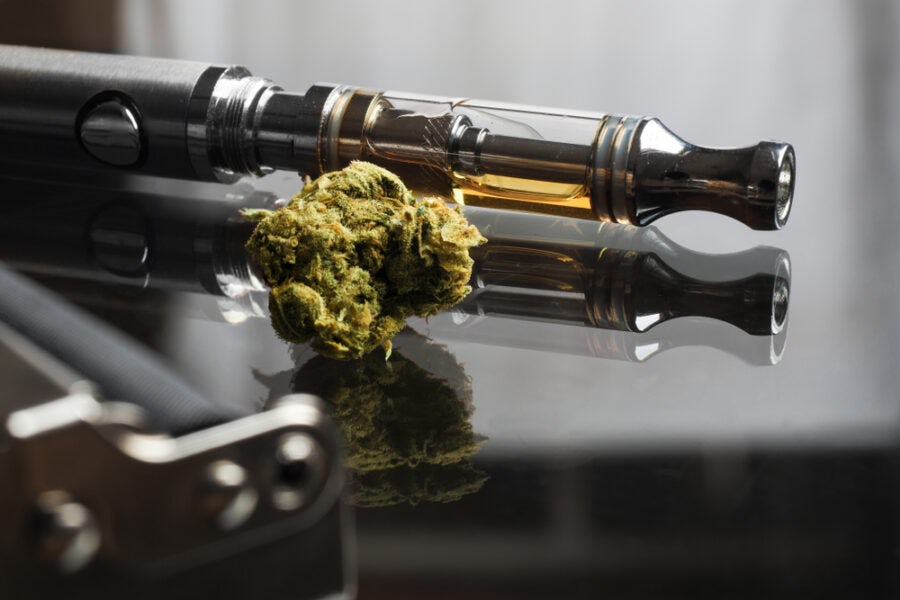Thanks to the ongoing legalization of marijuana, stories of pets eating weed are becoming quite common.
Dogs, cats, and other pets have an endocannabinoid system just like us, which means they can also get high. But this system is still unique to every animal so the effects aren’t necessarily the same as in humans.
Dogs in particular are likely to have an unpleasant experience from eating cannabis or edibles due to higher THC sensitivity.
Can dogs get high from weed?
Yes – dogs can get high. Similar to humans, they have two main types of cannabinoid receptors: CB1 and CB2.
The intoxicating effects of cannabis are largely the result of THC binding to CB1 receptors in the brain. Research suggests that dogs have more brain cannabinoid receptors than humans, so they’re likely to have a more intense and potentially dangerous experience. 1
My dog ate my weed: how long will it last?
Since they’re more sensitive to THC, the high itself can last longer in dogs. Early research suggests that dogs can experience symptoms of marijuana intoxication for 1-3 days, with an average duration of 24 hours. 2
Recovery can take as long as 5 days for dogs who ingest especially large amounts of cannabis.
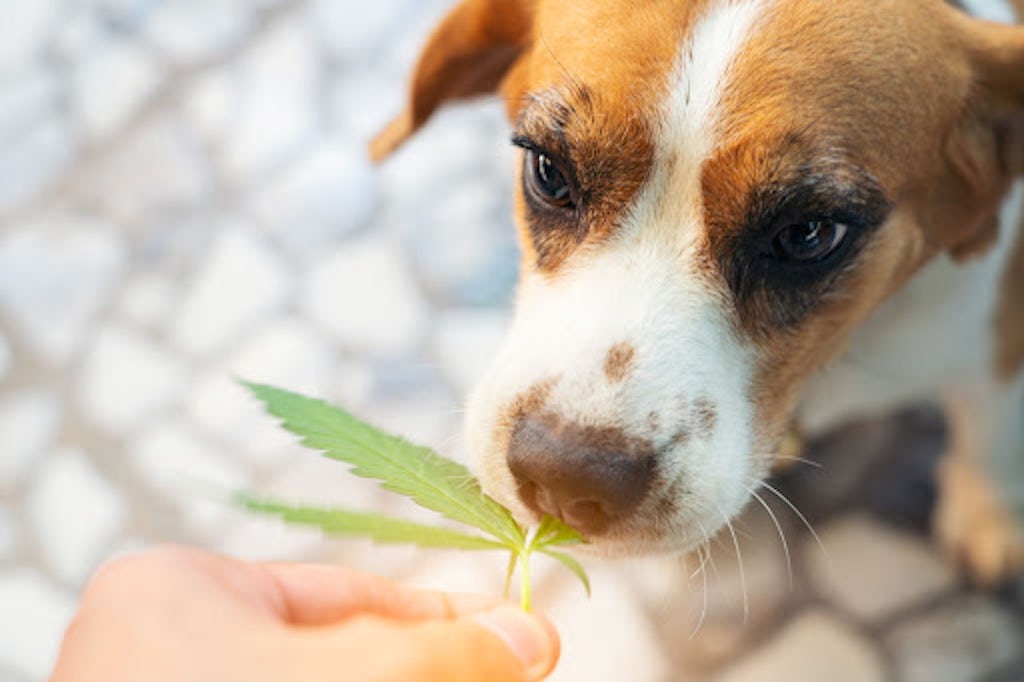
What happens if my dog eats weed? Symptoms of intoxication
Symptoms of cannabis intoxication in dogs usually appear within 60 minutes of ingestion.
Common symptoms include:
- vomiting (especially if they ate cannabis flower)
- dilated pupils
- urine leakage
- increased salivation and drooling
- lack of coordination
- drowsiness
- hypothermia
- reduced heartbeat
- stupor (disoriented, confused, lack of response to normal stimuli)
- increased sensitivity to light, sound, and movement
- vocalization (whining, barking, etc.)
In severe cases, particularly with higher dosages, dogs may also experience:
- agitation
- aggression
- rapid breathing
- elevated heartbeat
- low blood pressure
- hyperexcitability
- seizures (especially if chocolate was also consumed)
- coma
Is THC toxic to dogs?
Since they have more cannabinoid receptors in the brain, THC can be toxic to dogs. But the good news is that marijuana is relatively safe. The minimum lethal oral dose of THC for dogs is very high — more than 3 grams per kg (2.2 lbs) of body weight.
To put that into perspective, researchers estimate the average joint contains only 0.32 grams of cannabis. The actual THC content is even lower; since most popular strains of marijuana contain 10-30% THC, which translates to only about 32-96 milligrams (0.032-0.096 grams). 3
Even an eighth of weed (3.5 grams), the most common weight sold at dispensaries, will only have about 0.35-1.05 grams of THC.
That’s why deaths are extremely rare. Some of the only reported canine fatalities involved edibles made with highly potent cannabutter, although the exact cause of death was unclear.
Does it matter if my dog had an edible or actual weed?
If your dog ate an edible there are some additional dangers from other ingredients.
For example, popular cannabis-infused foods like brownies and cookies frequently contain chocolate, which is toxic to dogs and can cause many of the same effects as weed, including tremors, vomiting, elevated heart rate, and seizures. 4
Other common edible ingredients that can be harmful to dogs include caffeine, raisins, avocado, butter, and nuts. Another common ingredient in edibles are artificial sweeteners, and certain sweeteners, namely xylitol, can be very toxic to dogs–far more toxic than THC. 5
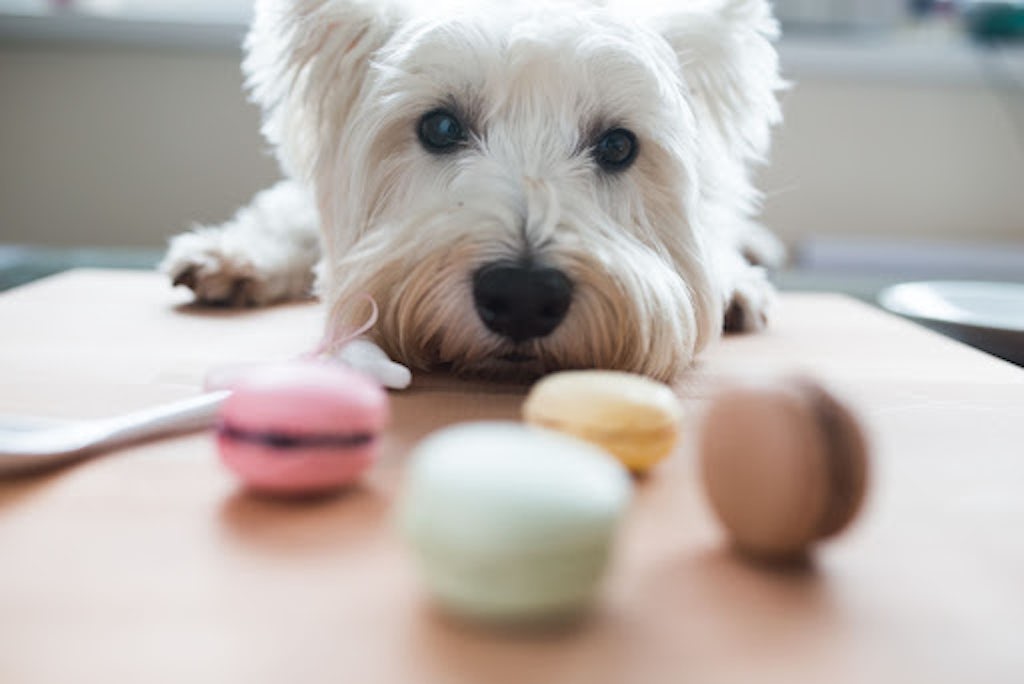
What to do if your dog eats your cannabis
If your pooch ate your weed, follow these steps:
- Above all, don’t panic. It’s easy to make mistakes and your dog will pick up on the tension, which can make their experience worse.
- Try to figure out exactly what, when, and how much your dog ate as this information will help the vet. For example, if you catch your dog right after they ate your stash and they are not yet behaving abnormally, the veterinarian may administer medications to induce vomiting and prevent most of the negative effects.
- Unless you’re certain your pooch ate a very small amount, take your dog to the vet right away. It might feel a little embarrassing but your dog will thank you.
- Reduce noises, lights, and other stimuli as possible to keep your dog calm before and during your trip to the vet. You want your four-legged companion to feel as secure and relaxed as possible.
It’s important to note that you shouldn’t feel embarrassed to tell medical professionals what has happened to your dog. “Veterinarians are not police, and even in states where cannabis is illegal, pet owners should not fear being reported if they tell the vet the truth,” says Dr. Kyra Mars from CBD Pet Products. “Diagnostic testing to rule out other causes of the clinical signs from THC toxicity can be very costly and likely unnecessary if the vet is given the proper history.”
What about cats and other pets?
Picky eaters like cats and other pets are less likely to ingest marijuana. But it can happen. Like dogs, they can also get high and experience unpleasant effects because most animals have an endocannabinoid system that functions similarly to humans.
However, research on pets is limited, so it’s hard to say exactly how a certain animal will respond. But one 2018 report did show that weed can be bad for cats. 6
The case involved a Persian cat who was exposed to cannabis smoke and experienced similar symptoms to dogs, including aggression, agitation, disorientation, thirst, changes in appetite, drooling, dilated pupils, loud meowing, hissing, lack of reaction to being called, and strange behavior like walking around aimlessly, hiding, and attacking people.

Bottom Line: store your weed properly
In the famous words of Benjamin Franklin, “An ounce of prevention is worth a pound of cure.” It’s always best to prevent your pet from eating cannabis in the first place than having to deal with the consequences.
Pet owners should store their weed, whether it be flower, edibles, medication, or something else, in a tight container away from their pets. Specially designed, smell-proof cannabis bags are a particularly good option and will also help you take your cannabis on the go.
This is especially important if you have a puppy. Research suggests that dogs less than a year old are more likely to accidentally eat cannabis thanks to their curious nature. 7
Sources
- Gyles C. (2016). Marijuana for pets?. The Canadian veterinary journal = La revue veterinaire canadienne, 57(12), 1215–1218.
- Kevin T. Fitzgerald, Alvin C. Bronstein, Kristin L. Newquist, Marijuana Poisoning, Topics in Companion Animal Medicine, Volume 28, Issue 1, 2013, ISSN 1938-9736, https://doi.org/10.1053/j.tcam.2013.03.004.
- Greg Ridgeway, Beau Kilmer, Bayesian inference for the distribution of grams of marijuana in a joint, Drug and Alcohol Dependence, Volume 165, 2016, Pages 175-180, ISSN 0376-8716,
https://doi.org/10.1016/j.drugalcdep.2016.06.004. - Weingart, C., Hartmann, A., & Kohn, B. (2021). Chocolate ingestion in dogs: 156 events (2015-2019). The Journal of small animal practice, 62(11), 979–983. https://doi.org/10.1111/jsap.13329
- Piscitelli CM, Dunayer EK, Aumann M. Xylitol toxicity in dogs. Compend Contin Educ Vet. 2010;32(2):E1-E4.
- Janeczek, A., Zawadzki, M., Szpot, P. et al. Marijuana intoxication in a cat. Acta Vet Scand 60, 44 (2018). https://doi.org/10.1186/s13028-018-0398-0
- Janczyk, P., Donaldson, C. W., & Gwaltney, S. (2004). Two hundred and thirteen cases of marijuana toxicoses in dogs. Veterinary and human toxicology, 46(1), 19–21.
Sign up for bi-weekly updates, packed full of cannabis education, recipes, and tips. Your inbox will love it.

 Shop
Shop Support
Support

